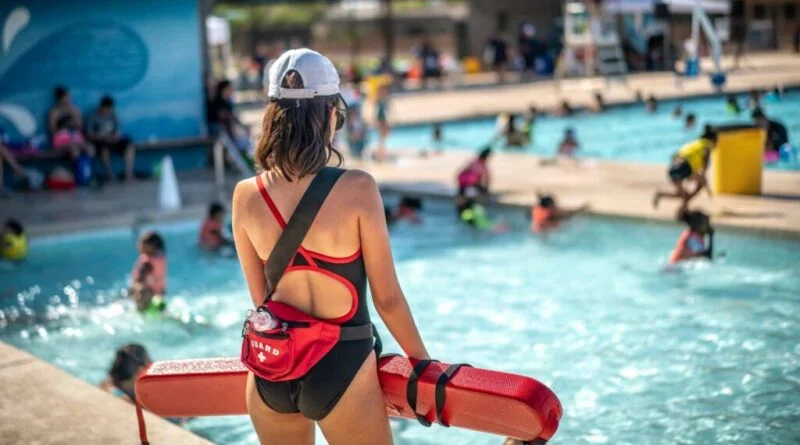Mastering Lifeguard Training: Essential Skills, Certification, and Safety Preparedness

Lifeguard training is more than just learning how to swim and blow a whistle—it is an essential program designed to save lives, prevent accidents, and promote water safety in public and private aquatic environments. According to recent trends on Google News and Google Trends, interest in lifeguard training has surged due to increasing demand for certified professionals at beaches, pools, and water parks across the U.S., especially during peak summer seasons.
Why Lifeguard Training Matters
Lifeguards play a crucial role in public health and safety. As drowning remains one of the leading causes of accidental death worldwide, trained lifeguards are a frontline defense against aquatic emergencies. Lifeguard training programs ensure that individuals are not only physically capable but mentally prepared to react promptly and effectively in high-pressure situations.
Key Components of Lifeguard Training
1. Water Rescue Techniques
Lifeguard training begins with mastering water rescue skills. These techniques include:
-
Active and passive victim rescues
-
Approaching panicked swimmers
-
Using rescue tubes and backboards
Trainees learn how to approach a distressed swimmer safely, avoid becoming a victim themselves, and efficiently bring the individual to safety.
2. CPR and First Aid
Cardiopulmonary resuscitation (CPR) and first aid are non-negotiable components of lifeguard training. Every lifeguard must be proficient in:
-
Adult, child, and infant CPR
-
Use of Automated External Defibrillators (AEDs)
-
Wound treatment, splinting, and managing heat stroke or hypothermia
These skills empower lifeguards to act immediately in medical emergencies before professional responders arrive.
3. Surveillance and Scanning Techniques
Preventing accidents is just as important as responding to them. Lifeguards are trained in:
-
Zone coverage and surveillance methods
-
Scanning techniques to monitor large crowds
-
Identifying high-risk swimmers and behaviors
Effective scanning helps lifeguards detect issues before they escalate into emergencies.
4. Emergency Action Plans (EAPs)
A key focus in modern lifeguard training is familiarity with Emergency Action Plans. These protocols are tailored to specific aquatic facilities and include:
-
Chain-of-command communication
-
Evacuation procedures
-
Coordination with emergency services
Regular drills ensure that lifeguards respond instinctively and efficiently under pressure.
5. Physical Fitness and Endurance
Being a lifeguard requires a high level of physical fitness. Trainees must pass swim tests that measure endurance, strength, and speed. Typical tests include:
-
Swimming 300 yards continuously
-
Retrieving a 10-pound object from 7-10 feet of water
-
Treading water without hands for two minutes
These physical challenges are essential to ensure lifeguards can perform rescues without endangering themselves or others.
Latest Trends in Lifeguard Training (Based on Google Trends & News)
Recent insights from Google Trends indicate a seasonal spike in lifeguard training interest during late spring and summer, particularly in coastal and resort states like California, Florida, and New York. Key developments include:
-
Online & Hybrid Certifications: Digital learning platforms are increasingly integrated into lifeguard training programs, combining theory-based modules online with in-person skill assessments.
-
Youth Recruitment Programs: Due to lifeguard shortages, many local governments are encouraging high school and college students to undergo training through subsidized programs.
-
Focus on DEI (Diversity, Equity, Inclusion): Training providers are emphasizing inclusive practices to diversify the workforce and ensure safety for all community members.
-
Mental Health Training: Lifeguards are being educated on handling emotionally charged incidents, including trauma response and post-incident support.
How to Prepare for Lifeguard Training
Preparing for lifeguard training is crucial for success. Consider the following steps:
-
Improve Swimming Skills: Practice different strokes and increase your stamina in the water.
-
Learn Basic First Aid: Familiarize yourself with CPR and first aid concepts in advance.
-
Stay Physically Fit: Engage in regular workouts focusing on cardiovascular endurance, strength, and flexibility.
-
Understand the Responsibility: Know that the role of a lifeguard demands vigilance, discipline, and quick decision-making.
Lifeguard Certification Process
To become a certified lifeguard, candidates typically:
-
Meet minimum age requirements (usually 15 years)
-
Pass a pre-course swim test
-
Complete classroom or online coursework
-
Participate in in-person rescue scenarios and drills
-
Successfully pass written and practical exams
Certifications are generally valid for two years, after which recertification or continuing education is required to stay current with techniques and protocols.
Real-World Challenges Faced by Lifeguards
Even with training, lifeguards must continuously adapt to real-world conditions such as:
-
High bather loads in peak seasons
-
Rough sea conditions or pool overcrowding
-
Unpredictable behavior of swimmers
-
Language barriers or non-compliance
Ongoing drills, situational awareness, and teamwork help lifeguards stay sharp and effective in high-stress environments.
Conclusion
Lifeguard training is an essential investment in public safety and personal development. It equips individuals with the knowledge, skills, and confidence needed to act swiftly in emergencies and prevent tragedies before they happen. As interest in water-based recreation grows and lifeguard demand increases, the importance of high-quality, standardized lifeguard training has never been more critical.
- Art
- Causes
- Crafts
- Dance
- Drinks
- Film
- Fitness
- Food
- الألعاب
- Gardening
- Health
- الرئيسية
- Literature
- Music
- Networking
- أخرى
- Party
- Religion
- Shopping
- Sports
- Theater
- Wellness
